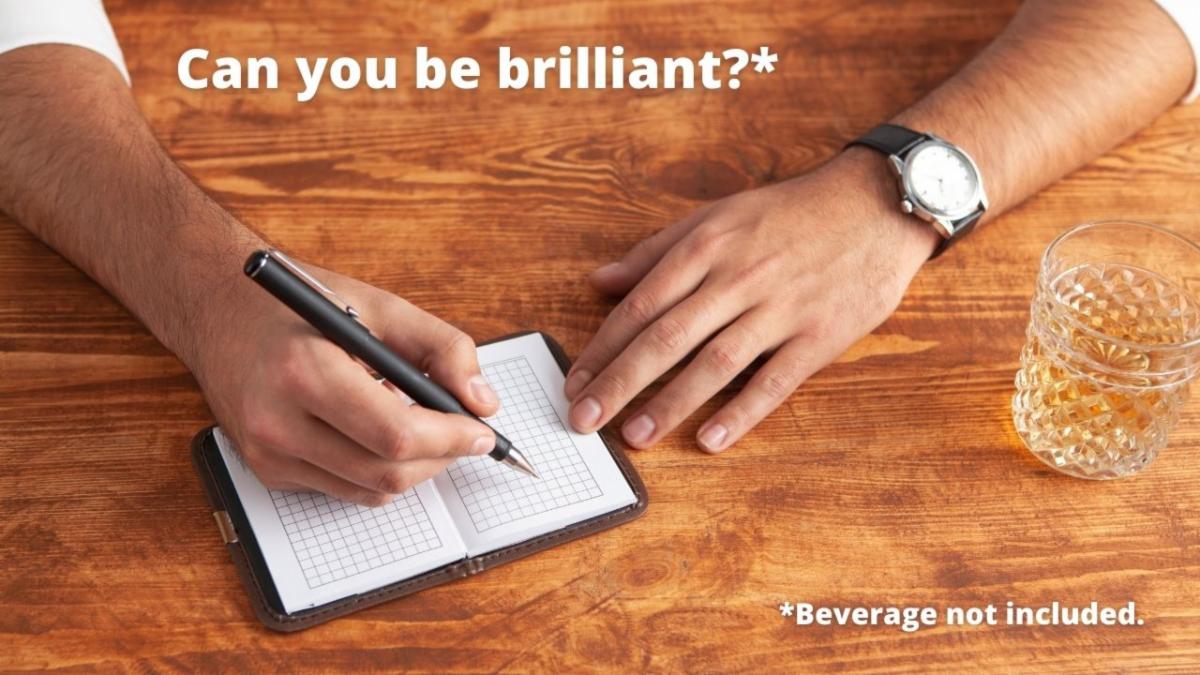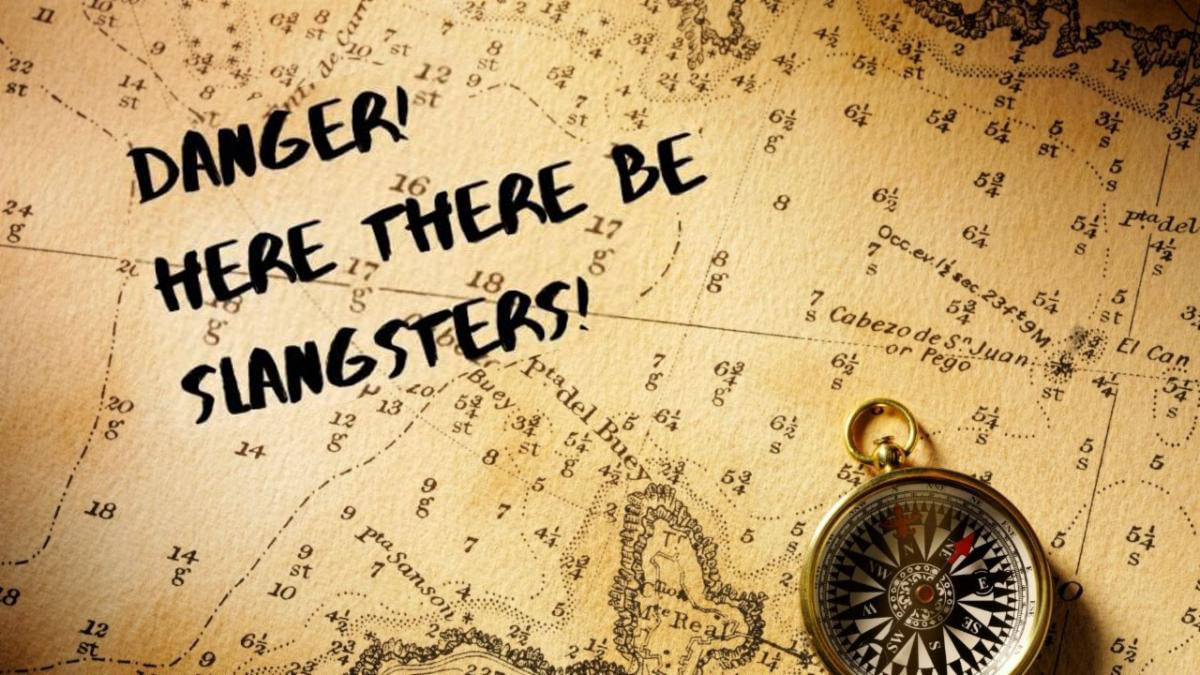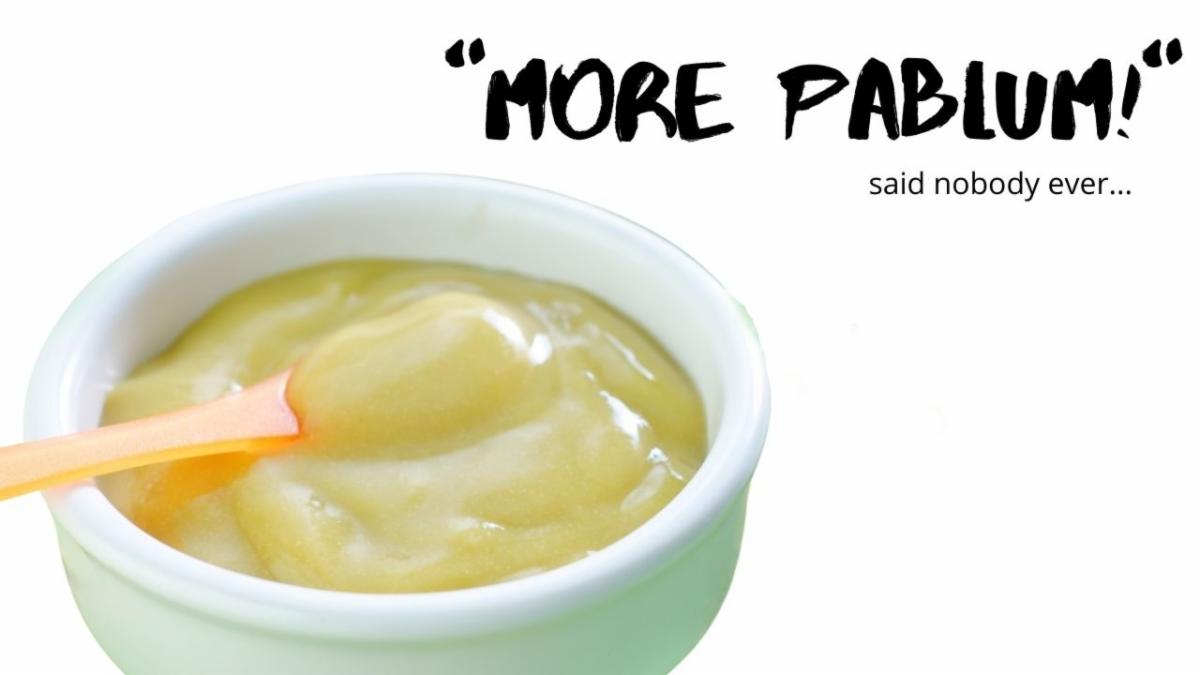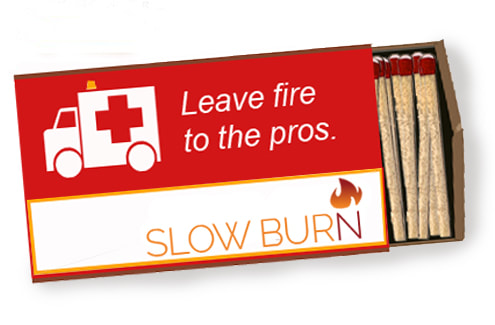|
"What have I done?"
--Nicholson at the Kwai Bridge Indeed, what have I done? This screed is a mess. It all began with a question: What profound gem of copywriting or marketing can I toss your way as a parting thought for 2020 that will change your life in 2021? And the answer: Probably nothing. You are witnessing the not-knowing of writing a regular weekly assignment in an effort to be useful, purposeful and intentional. Sometimes, this exercise is just hopeless. Go ahead. Leave now. Save yourself. Something I’ve found myself doing lately is thinking back. Not with nostalgia, but curiosity. What writers have made me sit up and take note? What writers have influenced my work in one way or another? They are a diverse and intelligent lot, all smarter than I. Some of them you probably know. Ogilvy. Bernbach. Williams. Godin. Gossage. Well, maybe you don’t know that last one. Howard Gossage is a kind of a cult figure among copywriters. He died too young, but still had a profound impact on ad guys as diverse as Goodby Silverstein’s Jeff Goodby and late, great, Guerrilla Marketing guru Jay Conrad Levinson. But there are other, less likely writers. For instance, there’s the late New York Times columnist, Russel Baker. I was in junior high school when he wrote his column about how to carve a Thanksgiving turkey. His prose made it clear how hysterically funny a newspaper columnist can be--especially when he’s not writing about politics. I also remember the opening paragraph to Baker’s satirical piece about televised sports, titled “Kaleidosport.” “For days, we sat at the box mesmerized by sport. We saw the Mets beat the Nets and the Jets, saw Pancho Segura score a hole in one, and watched thunderstruck as Evonne Goolagong came off the bench in the final seconds of play to whip the mighty Nebraska Cornhuskers with a line drive to center field.” That’s just the beginning. It becomes a lesson in crazy. I remember discovering PJ O’ Rourke, known today as a conservative pundit, via an article he wrote for Car & Driver magazine about competing in an off-road rally in the new Jeep Cherokee. In the article, he touted the joys of packing a suitcase while drunk (when you get to your destination, opening the suitcase is like Christmas). He asserted that while Michael Nesmith has zero skills to offer as a rally competitor, he is an excellent conversationalist, and that was sufficient to put him in the car. And O’Rourke’s saying that a hotel-catering shrimp cocktail looked like “a Sea World exhibit gone horribly wrong” was an object lesson in how a simple line of excess can break up a roomful of people. Sometimes, a writer is sticky for just than a single line. For instance, Carl Sandburg’s “The fog comes on little cat feet.” It’s a seven-word gem that is firmly ensconced in my gray matter. In another life, it might have been good ad copy. It's succinct, crystalline and memorable. David Ogilvy is so very quotable. But from his writing, there are two lines that stick with me as quintessential. One is his classic headline: “At 60 miles an hour the loudest noise in the new Rolls-Royce comes from the electric clock.” The other line is an admonition to advertising professionals: “The consumer is not a moron. She is your wife. Don’t insult her intelligence.” Pow! Right in the kisser! (Oh, look. That's a quote from Jackie Gleason.) I can also pretend I read the classics. With that, I will say that Shakespeare has done it for me with one line, but not any of those lines so oft repeated they're now seen as clichés. Instead, it’s Marc Antony’s soliloquy over Julius Caesar’s body: “And Caesar’s spirit, ranging for revenge, with Ate at his side come hot from hell, shall in these confines with a monarch’s voice cry, ‘Havoc!’ and let slip the dogs of war.” No, it's not a cheery sentiment. But not all writing is cheery. Sometimes, it needs to be potent and powerful. (Forgive me for not writing this in the proper format for iambic pentameter.) An equally sticky, deadly line for me couldn’t be from a more different source. It is said by Charles Bronson in the movie, The Mechanic. [SPOILER ALERT.] Mob hit man Bronson has been training aspiring mob hit man Steve. Steve returns the favor by betraying Bronson and killing him. Steve moves into Bronson’s house. He's now living large on the memory of his mentor. He goes to the kitchen and opens the freezer door. In the freezer, Steve sees a note. Bronson’s voiceover reads: “Steve, if you're reading this, it means I didn't make it back. It also means you've broken a filament controlling a 13-second delay trigger. End of game. Bang! You're dead.” And the refrigerator explodes. Cheery and violent! (Monty Python.) What is the point of all this? Let’s call it a New Year’s Call To Action. Write inspired. And know that you’ll find inspiration in the unlikely places. Read what’s evocative. Find words that make your head explode. When words take you by surprise, ask, “Why?” Obviously, you can't copy it. That's called plagiarism. But you can hold it in your hand like a shiny jewel and raise it up to the light and understand what makes it shine. Even bad craft has value. Sit with a group of friends opening their fortune cookies and you see it in action. as they read their fortunes aloud, each person in the group writes something new based on that little slip of bad copy. There is value in raw material all around you. Be informed by it, and it can inform your writing. And your writing is one thing you do that can clearly set you apart. It will let you raise the bar in your service to others. Being surprising enhances the sell. And in your professional life--maybe even your personal life--the loudest noise will be the electric clock. Bang. You’re living large. Happy New Year. Got a favorite inspiring line? Reply to this email and share it. If we get enough, I’ll compile them for another Hot Shots. Cheers, Blaine Parker Your Lean, Mean Creative Director in Park City LIGHTNING BRANDING ON AMAZON The Kindle edition of our new book is now available at Amazon for the bargain price of $19.95. For details about our new Lightning Branding courses, both do-it-yourself and we-do-it-with-you editions, click here. (There's even a video of us!)
0 Comments
Making Writing Fun Again--If It Ever Even Was...
Writing with pen and paper. Is it like composing on a piano or guitar instead of a synthesizer? Pounding the keys or plucking the strings instead of turning knobs and flipping switches? I started writing this screed on a computer. How ironic is that? And how much more vital will this missive be made by switching over to the implements of our forebears, replacing the prattle produced in zeroes and ones with the prattle of pen and paper? Maybe not at all. Maybe it’ll still be drivel. But, all this to say… This Christmas, Give Yourself A Writer’s Gift You find yourself writing a lot--or, at least, writing more than you want to be writing. And staring at that blank Word document in the computer sucks out loud. (There. I said it.) I know the feeling. I’ve also been doing something about it. You can, too. It requires giving yourself a gift. It doesn’t have to be expensive (though it can be). It can also change a lot about the way you connect with what you’re required to write. In fact, it might make writing feel like a pleasure again--or maybe even for the first time ever. It’s also going to sound stupidly simple, even ridiculous. You might even hate me for this. Ready? Buy yourself a good, small notebook and a good pen. Then, find yourself a good place for sitting. And writing. My reference standard for writing materials are a grid-lined A4 Moleskine notebook (that’s about 5 x 8 inches) and a Waterman Hémisphère pen with a rollerball cartridge. (The smaller Moleskine is great for carrying in a pocket or purse, and you get to feel like you’re one of those Lost Generation writers cruising the Left Bank.) Yes, a Moleskine and a Waterman together can set you back about 80 bucks. But they’re special. With them, you develop a different kind of connection. You almost feel like you’re sitting in Les Deux Magots across the room from F. Scott as you scribble your next sales sonnet for the new ad campaign. That said, a simple ballpoint and a good Moleskine knockoff can be had for about 15 bucks, and can still make you enjoy what you’re doing with them. So can the venue. In the house, I have a new writing spot. It’s a club chair with a reading lamp and a side table. On the table are two generic ballpoints and four notebooks. When I wake up at 5am, which happens often, I brew up a French press full of Italian roast from an American purveyor (all without creating an international incident), and I sit in the early morning darkness beneath the ring of light from the reading lamp to scribble and scrawl. (My handwriting sucks.) Sometimes, as this morning, I’m making notes for my next non-fiction book. That happens in a Moleskine knockoff that came from Walmart. The notebook was about six bucks. The ballpoint was free. And the resulting verbal pearls are priceless. (IMHO. YMMV. AIPW.)* Other times, I’m reading a book about the anthropology of music and finding parallel inspiration for the creative and psychological processes as they pertain to branding. That writing is happening in a proper Moleskine that I bought years ago, and has been sitting on a shelf, waiting for a little attention. Some mornings, I whip out another Moleskine that’s filled with notes about clients and branding and ads and--yes--drafts for this screed. (!) One notebook is a gratitude journal. As something of a comedian and cynic, this is not an exercise I ever saw coming. But enough intel about this thing called gratitude journaling keeps finding me that I decided to take a crack at it. Who knows? Maybe it’s making me a better person. At the very least, it’s going to give me something else to joke about. Once upon a time, when I was doing stand-up comedy, I was branded as a low-rent Dennis Miller. If this can’t fix that, it can make me more low-rent than I was before. But why does any of this make a difference? It’s the power of pen over Pentium. There’s a connection between your brain, your hand, the pen and the paper that cannot be replicated with a keyboard and screen. Don’t get me wrong. I’ll never give up digital media. They’re here to stay, and they’re a necessary tool. But I find that I’m writing better when sitting alone with the organic components of writing as it used to be. Science also offers insight to back us up on this. Writing with pen and paper engages more of your brain. It excites your Reticular Activating System, which is like the CPU for the computer that is your very being. Everything lights up and comes alive. Writing with pen and paper can establish a more profound emotional connection between you and your reader. You also gain better recall of what you’ve written. Bonus: you’re not distracted by the computer’s siren song to check the headlines or read email. Is it time to turn over a new leaf--literally? Maybe. I know I’m enjoying the process more when I'm away from the computer. My time alone under the light with the pen and paper is visceral in a way computers can’t be. I think about the late, great Hal Riney, who wrote some of his legendary advertising on notepaper in a bar. Some great writers of the Lost Generation used pen and paper. Hemingway used a blank page and a stubby pencil. James Patterson and Stephen King write longhand. Quentin Tarantino, Joyce Carol Oates, Amy Tan and George Clooney are all analog lettering Luddites. Even JK Rowling’s first Harry Potter novel was written by hand. Yes, she was too broke to afford a typewriter or a computer. But if she had used one or the other, how would it have changed the nascent genius that has turned her into one of the wealthiest people on the planet? Want to feel the tiny thrill of wordsmithing that's more exciting and impactful than you expect it to be? Try a good pen and a good notebook. There’s all kinds of scientific evidence to back up the power of analog instruments. And the emotional significance of that special place where you can compose might even make you look forward to the blank page each morning. And if you decide to try this, let me know how it goes for you. I’m curious to hear about your success. Belated Happy Hanukkah. Merry Christmas. Happy Kwanza. Happy National Cookie Exchange Day. Whatever you’re celebrating, have a fabulous holiday. *In My Humble Opinion. Your Mileage May Vary. And It Probably Will. Cheers, Blaine Parker Your Lean, Mean Creative Director in Park City LIGHTNING BRANDING ON AMAZON The Kindle edition of our new book is now available at Amazon for the bargain price of $19.95. For details about our new Lightning Branding courses, both do-it-yourself and we-do-it-with-you editions, click here. (There's even a video of us!) The Slangster is a treacherous creature.
It covertly roils and boils. Everything seems delightfulighty and wordylicious and then—when you least expect it—the Slangster leaps out to derail your writing! This is important whether you wield the sword-like pen yourself, or others do so on your behalf. Here now, an example full of light… Over the weekend, The Fabulous Honey Parker and I were watching a national TV news magazine. This is a big network show, a legacy program from a legacy network that was once the gold standard in the news biz. Amid a parade of Christmasy stories, one anchor stepped to the side for a segment on the Jewish Festival Of Lights, better known among the hoi-polloi as Hanukkah. Among the Hanukkah traditions discussed was the dreidel. As you know, the dreidel is a little, four-sided spinning top. It’s used in a children’s game. Kids spin the top in an effort to win chocolate coins from each other. It’s like a child’s first foray into gambling. The exact phrasing the host used to describe the spinning top was this: “The whirling dervish called the dreidel.” Well, then. You can imagine the linking of ideas that took the writer to this metaphor. One plays the dreidel by spinning it. So, the writer made a connection from spinning to whirling. Then, the idea of whirling led to “whirling dervish.” This is not the most apt metaphor. For one, a dervish is a person. The colloquial definition of the phrase is a person who is energetic, in constant motion, possibly even chaotic, blathering and uncontrolled. That’s the slang usage. The literal definition of a whirling dervish is a member of religious order that practices an ecstatic ritual that involves spinning in circles. That religious order is, specifically, Sufi Muslims. So, on a notable Jewish holiday, an experienced national news professional comparing a dreidel to a member of Muslim sect is exceptional writing for the wrong reasons. At best, this kind of writing creates a mental speed bump. For anyone who’s paying attention, there’s a “What the…” moment that derails focus from the message and onto the writing problem. It certainly took the two of us out of the story. At worst, Jews (and Muslims) could take offense. Here There Be Slangsters! Why does a WASP from Connecticut who lives in predominantly Mormon Utah care about this? I care because I have great respect for effective, evocative communication. I also enjoy writing and having fun with words. (You can, too!) That said, it’s also necessary to know what the words mean. Writing with purpose and intent matters. Even writing with purposeful, intentional ignorance and offense has its place. But when using slang, it’s necessary to know what the slang means and that it’s being used correctly. We know a highly educated, high-level professional in a career where language is imperative. This person uses mangled clichés like, “I haven’t rested my laurels,” “Shift horses mid-stream,” “It’s a little chicken and the egg,” and “Head ‘em off at the path.” It’s a little like having a business consultation with Norm Crosby or Slip Mahoney. As far as the dreidel goes, what might have been the alternative language choices? For instance, what if the writer had used the phrase “spinning Tasmanian Devil”? It’s still a weird personification. But at least that’s not a potential religious offense. Though, it could be offensive to real Tasmanian devils, who do not in actuality spin like the drooling, frantic and hyperventilating Warner Brothers cartoon character. And the actual, literal Tasmanian devil is a surly marsupial with a voracious appetite for the raw flesh of other animals. So maybe that’s the wrong metaphor. Instead of comparing the top to a living creature, how about just using modifiers like, “revolutionary, gyrating toy top for fun and frolic”? But that sounds kinda stupid. We could just call it what it is... "The dreidel spinning top, a child’s game of chance and chocolate." It’s not exactly poetic, but it’s clear and definitive and alliterative. All this to say, in an effort to be an evocative communicator, watch out for The Slangster! Stock phrases and over-worn clichés do not always mean what we think they mean. Sometimes, they bite! And really, why not just make up your own stock phrases? (See the beginning of this missive.) Being original and surprising and delightful can be far more interesting and useful and profitable. Shalom and Happy Hanukkah, my friend! Cheers, Blaine Parker Your Lean, Mean Creative Director in Park City LIGHTNING BRANDING ON AMAZON The Kindle edition of our new book is now available at Amazon for the bargain price of $19.95. For details about our new Lightning Branding courses, both do-it-yourself and we-do-it-with-you editions, click here. (There's even a video of us!) Hasn’t Subaru has done a remarkable job of marketing? They ride around in all-wheel drive, convincing us that it’s better for the planet to drive their air-polluting machine made of environmentally unsound materials than it is to drive some other brand of air-polluting machine made of environmentally unsound materials. It’s an extension of their broader brand theme of love being what make a Subaru a Subaru. Love for your family. Love for your pets. Love for your planet. Subaru shares the love, but… At the end of the day? Everything in their business comes back to mining and drilling. They risk being precious. But they’ve done a great job dancing around it. “Fight for the environment covered in clothing made of materials not found in nature!” A huge outdoor clothing manufacturer loves suggesting their very expensive outdoor gear is better for the planet because the people who sell it hate environmental rape. It seems that a righteous belief in stewardship of nature justifies selling products of manmade fibers, plastics, metals, and other materials not found in nature. Don’t think too hard about that, and the facts are irrelevant. Standing arms akimbo atop a snowy peak of marketing while proclaiming objection to planetary rape by selling products made possible by planetary rape is an irony worthy of an Ayn Rand novel. Rebelling against the status quo is so fashionable! I was just reading one of the many tags that came on a new garment by another company. “Born from our rebellious philosophy to question everything, break the rules, and reject the status quo.” Their products resist, defy, and oppose the norm--right down to good grammar! Wearing their products tells you they represent freewill! So, the company’s modus operandi is rebellion and breaking things? Only insofar as it doesn’t endanger the norms of manufacturing, supply chains, online sales and brick & mortar stores. (Just a guess.) And the garment is resisting and defying the norm? Is it sentient? Give me two! Rebellion! Resistance! Defiance! Why does the garment have only two sleeves and one neck hole? Why not three sleeves and three neck holes?! Does the clothing come with a Molotov cocktail and a pocket to put it in? The precious can range from genius to disingenuous to jabber. But it’s all an effort to make the customer feel some way about the brand. Skillful or inept, the preciousness is intentional. The purpose is to take a position. And being precious with purpose and intent is better than being pablum. “What is pablum?” you ask? You probably know, intuitively if not literally. Pablum is a one-time brand name for processed cereal fed to infants. As a food, Pablum is an unchallenging mush. The word has also evolved into a metaphor. It means simplistic, bland, unappetizing, infantile, or (yes) mushy. So much ad copy is pablum. The writing takes a weak position. It has no zip. It has no attitude. It lacks pizzazz. It just lies there like a lump. Even the name: “Pablum.” The word is a lousy advertisement even for itself. Has anyone ever said, “More pablum, please!” Doubtful. The actual Latin root word for the name is “pabulum.” It means “foodstuff.” At least the extra syllable makes the word sound like it's trying harder. Say it out loud: “pab-yew-lum.” It sounds like it’s on the periodic table of elements between titanium and kryptonite! “Crank up the pabulum, baby!” I was looking at “pablum” and thinking: We need another word. An anti-pablum. Pablum is a descriptor for writing that is mushy and makes the customer feel nothing. We want the customer to feel something! Elegance! Excitement! Engagement! Electricity! Ah-ha! Electrium! Electrium is the anti-pablum. Are you writing copy? Is it just lying there? Ask yourself, “Is this pablum?” And if the answer is yes, and you know in your heart it can be better, ask yourself, “Where is the electrium?” Ask, “How do I electrify this? What electric words am I missing?” How can I scare someone? How can I make them excited? How can I give them hope? How can I make them laugh and feel the love? Use your words! Are your words are failing you? Thumb the thesaurus! Lexicon! Vocabulary! Onomasticon! Treasury of words! Shorter sentences! Attack words! White space! Silence! Stomp into the room! Find the Electrium and bring on the battle! Let the customer encounter the conflict. Somewhere in the sell, there is a fight between good and evil. Selling something good? There has to be something bad! In a noisy world, words must cut through. And in a polluted world, sometimes it sounds like shared love for family, pets and planet. Even if it gets precious, it’s better than pablum. Electrium! Cheers, Blaine Parker Your Lean, Mean Creative Director in Park City www.SlowBurnMarketing.com www.CoupleCo.com www.LessonsInLightning.com LIGHTNING BRANDING ON AMAZON The Kindle edition of our new book is now available at Amazon for the bargain price of $19.95. For details about our new Lightning Branding courses, both do-it-yourself and we-do-it-with-you editions, click here. (There's even a video of us!) The quiet places are an endangered species...
Everywhere you go now, you find manmade noise. Even in the remotest parts of the world, it’s difficult to experience the silence of nature. Science believes this is unhealthy. Humans were not made to live this way. And if even the most remote and isolated places are infested by human-made sound, how overwhelmed are the places where humans live crushed together? Noise is pandemic. Noise is the new normal. Noise is also a barrier. Noise prevents communication. And now more than ever… Noise is standing between you and your customer. We already know that if we can’t see our customer in the copy, we haven’t written an ad. You know what else? We haven’t written an ad if our customer can’t hear us. And the customer can’t hear us when we are just part of the noise. Noise is like a glass wall. On one side, we have our words. On the other side is our customer. In a culture filled with glass walls of noise, we have to cut through the glass. Sharp thoughts. Clarity of purpose. Vivid intent. Hard-edged sentences. We must work at writing things that cannot be mistaken for noise. It’s about working at writing sentences that surprise! Committing to concepts that inspire the moment of, “Ah-ha!” Even if we say it silently to ourselves, “Ah-ha!” is our comrade and collaborator. When we are surprised by our own words, when we have an ah-ha moment while we’re writing, our customer can, too. The customer can hear “Ah-ha.” “Ah-ha” means micro-dynamite for breaking through. Whatever we are saying, we can always find a better way to say it. Whatever you're writing, blow it up. Do the math on your English. Don’t worry about writing different. Worry is noise. Worry stands between our pen and our page. Kill the worry. Just write it like nobody’s watching. Write it write it write it. Then… Refine it. Or maybe even start over. Dig a new hole you can launch yourself out of. The first pass is never ready for trotting out with the dogs and ponies. The first pass is just more noise. The fifth pass is where the diamond cuts the glass wall of noise. That’s where we cut through and connect our commercial to our customer. That’s when the customer hears us: when diamond-edged words cut the glass for clarity, purpose, intent, and action. The customer hears the words when we're writing words worth hearing. Cheers, Blaine Parker Your Lean, Mean Creative Director in Park City LIGHTNING BRANDING ON AMAZON The Kindle edition of our new book is now available at Amazon for the bargain price of $19.95. For details about our new Lightning Branding courses, both do-it-yourself and we-do-it-with-you editions, click here. (There's even a video of us!) |
AuthorBlaine Parker is prone to ranting about any and all things related to brand. In many ways, he is a professional curmudgeon. While there is no known vaccine for this, the condition is also not contagious. Unless you choose it to be so. Archives
February 2022
Categories
All
|
|
© Copyright 2020 Slow Burn Marketing LLC |






 RSS Feed
RSS Feed

